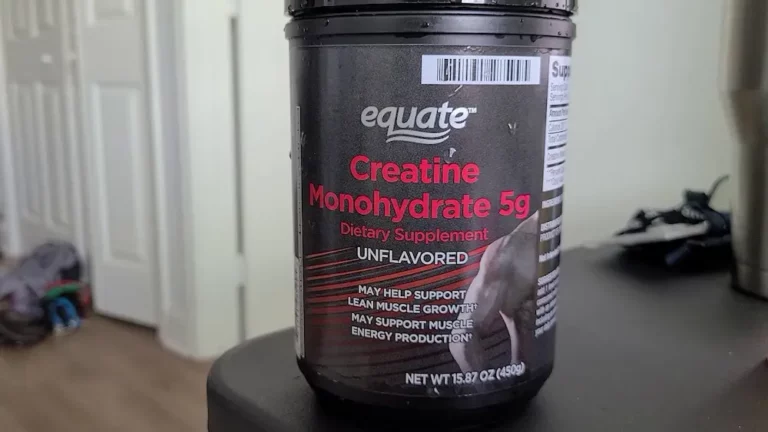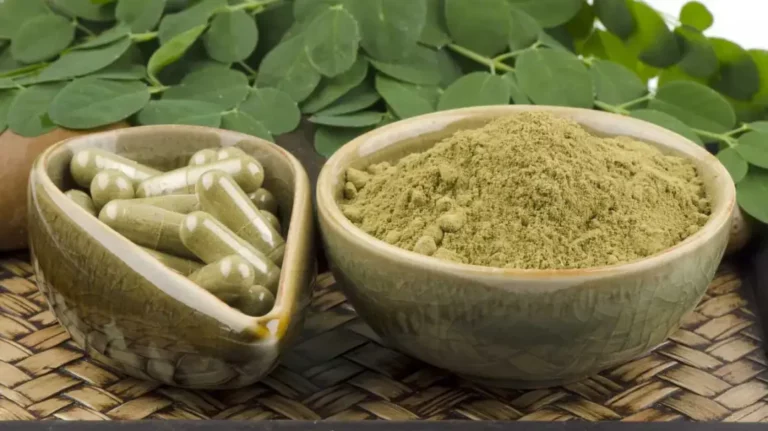Sunflower Lecithin vs Soy Lecithin: Which is Better for Your Health?
Are you curious about the differences between sunflower lecithin and soy lecithin? Both are commonly used as emulsifiers in processed foods, supplements, and cosmetics. However, they come from different sources and have distinct nutritional profiles.
Sunflower lecithin is derived from sunflower seeds, while soy lecithin comes from soybeans. Sunflower lecithin is often considered a healthier alternative to soy lecithin because it is non-GMO and free from allergens. Additionally, sunflower lecithin contains more phospholipids, which are essential for brain health and cognitive function. Soy lecithin, on the other hand, has been shown to have benefits for heart health and may help lower cholesterol levels.
If you’re looking to choose between sunflower lecithin and soy lecithin, it’s important to consider your specific needs and dietary restrictions. Keep reading to learn more about the differences between these two popular emulsifiers and how they can impact your health.
Understanding Lecithin
Lecithin is a natural emulsifier that is found in many foods, including soybeans, sunflower seeds, and egg yolks. It is a type of phospholipid that contains both hydrophilic and hydrophobic properties, making it an amphiphilic substance. This unique property allows lecithin to act as an emulsifier, helping to mix oil and water-based substances together.
Lecithin is often used as a natural emulsifier in the food industry, as well as in supplements and other products. It is commonly extracted from plant sources, such as soybeans and sunflower seeds, using a cold-pressed method.
One of the most well-known components of lecithin is phosphatidylcholine, which is a type of phospholipid that is found in high concentrations in the brain. Phosphatidylcholine is important for maintaining healthy brain function and has been shown to improve cognitive performance in some studies.
In addition to its role as a natural emulsifier, lecithin also has a number of health benefits. It is a source of essential fatty acids, which are important for maintaining healthy skin, hair, and nails. Lecithin has also been shown to help lower cholesterol levels and improve heart health.
Overall, lecithin is a versatile and beneficial substance that has a wide range of applications. Whether you are looking for a natural emulsifier for your food products or a supplement to support your overall health, lecithin is a great choice.
Sunflower Lecithin Overview
If you are looking for a natural supplement to add to your diet, sunflower lecithin may be a great option for you. This supplement is derived from sunflower seeds and is a rich source of choline, a nutrient that is important for liver and nervous system function, memory, and cognitive function.
Sunflower lecithin is available in powder form and is a popular choice among those who are allergic to soy. Unlike soy lecithin, sunflower lecithin is hypoallergenic and does not cause allergic reactions in most people.
One of the benefits of sunflower lecithin is its ability to emulsify fats. This means that it can help stabilize the texture and shelf life of products like chocolate, margarine, and ice cream. Sunflower lecithin is also a great source of antioxidants, protein, and linoleic acid, which can help reduce inflammation and improve skin health.
The extraction process for sunflower lecithin is often done through cold pressing, which preserves more of its nutrients and results in a cleaner taste. Sunflower lecithin is also non-GMO and organic, making it a popular choice for those who prefer plant-based supplements.
While sunflower lecithin is generally considered safe, it is important to note that some people may experience side effects such as digestive issues or allergic reactions. It is also important to talk to your doctor before adding any new supplement to your diet, especially if you have a medical condition or are taking medication.
Overall, sunflower lecithin is a great supplement for those looking to improve their liver and nervous system function, stabilize the texture and shelf life of products, and improve their overall health and well-being.
Soy Lecithin Overview
If you’ve ever read the label on a processed food item, you may have noticed soy lecithin listed as an ingredient. Soy lecithin is a byproduct of soybean oil production and is commonly used as an emulsifier and stabilizer in a variety of food products, including chocolate, margarine, and ice cream.
While soy lecithin is generally considered safe for consumption, it can be an allergen for some people with soy allergies. Additionally, some soybeans are genetically modified, which may be a concern for those looking to avoid GMOs in their diet.
The extraction method used to obtain soy lecithin involves a degumming process that uses chemical solvents. This can be a concern for those looking for organic or plant-based options.
Soy lecithin contains inositol, a nutrient that is important for brain health and nervous system function. It also contains phytoestrogens, which can have an estrogen-like effect in the body.
Some studies have suggested that soy lecithin may have benefits for heart health and liver function, but more research is needed to confirm these findings. It may also have anti-inflammatory and antioxidant properties.
While soy lecithin is generally safe for consumption, it’s important to be mindful of dosage and to avoid consuming excessive amounts. It’s also important to note that soy lecithin is commonly found in processed foods, so it’s important to read labels and be aware of how much you’re consuming.
Comparing Sunflower and Soy Lecithin
If you’re looking for a natural emulsifier to use in your cooking or as a supplement, you may have come across sunflower lecithin and soy lecithin. Both are derived from natural plant sources and have similar properties, but they also have some key differences that may make one more suitable for your needs than the other. Here’s a comparison of sunflower lecithin vs soy lecithin to help you make an informed decision.
Extraction Process
One of the main differences between sunflower lecithin and soy lecithin is the extraction process. Sunflower lecithin is typically extracted using a cold-pressed method, which is considered to be healthier and more natural because no additional solvents are required. Soy lecithin, on the other hand, is usually extracted using chemical solvents like hexane, which can leave behind harmful residues. While most soy lecithin products claim to be free of hexane, it’s still a concern for some people.
Source Material
Another difference between sunflower lecithin and soy lecithin is the source material. As the names suggest, sunflower lecithin comes from sunflower seeds, while soy lecithin comes from soybeans. This can be an important consideration if you have allergies or sensitivities to either of these plants. Soy lecithin is a common allergen, so if you have soy allergies, you’ll want to avoid it. Sunflower lecithin, on the other hand, is generally considered to be non-allergenic.
Nutritional Profile
Sunflower lecithin and soy lecithin have similar nutritional profiles, but there are some differences. Both are rich in choline and phospholipids, which are important for brain health and nervous system function. However, sunflower lecithin has higher levels of phosphatidylcholine, which is a type of phospholipid that is particularly beneficial for liver function and fat metabolism. Soy lecithin, on the other hand, has more linoleic acid, which can be beneficial for heart health.
Health Benefits
Both sunflower lecithin and soy lecithin have health benefits that make them popular as supplements. Sunflower lecithin is known for its exceptional antioxidant ability, which can help protect against inflammation and oxidative stress. Soy lecithin, on the other hand, is often used to lower cholesterol levels and improve heart health. Both lecithins are also used as natural emulsifiers in baked goods, margarine, ice cream, and other processed foods.
Allergies and Side Effects
While sunflower lecithin is generally considered to be non-allergenic, some people may still have allergic reactions to it. Soy lecithin, on the other hand, is a common allergen and should be avoided by people with soy allergies. In terms of side effects, both lecithins are generally considered safe when taken in appropriate doses. However, some people may experience digestive issues like diarrhea or nausea if they take too much.
Conclusion
In conclusion, both sunflower lecithin and soy lecithin are natural emulsifiers that have similar properties but also some key differences. Sunflower lecithin is generally considered to be healthier and more natural because it’s extracted using a cold-pressed method and is non-allergenic. Soy lecithin, on the other hand, is more widely available and is often used to improve heart health. Ultimately, the choice between sunflower lecithin vs soy lecithin will depend on your specific needs and preferences.
Frequently Asked Questions
What are the benefits of using sunflower lecithin over soy lecithin?
Sunflower lecithin is a great alternative to soy lecithin for people who are allergic to soy or who want to avoid genetically modified ingredients. Sunflower lecithin is also considered to be a healthier option as it is extracted using a cold-pressing method that does not require the use of solvents. It is also believed to have a cleaner taste than soy lecithin.
What are the potential drawbacks of using soy lecithin?
One of the potential drawbacks of using soy lecithin is that it may contain genetically modified organisms (GMOs). Additionally, some people may be allergic to soy, which could cause adverse reactions.
Can sunflower lecithin be used as a replacement for soy lecithin?
Yes, sunflower lecithin can be used as a replacement for soy lecithin in most applications, including as an emulsifier in baked goods, chocolate, and other foods. However, it is important to note that sunflower lecithin may have a slightly different taste and texture than soy lecithin, so it may require some experimentation to find the right balance in recipes.
How does sunflower lecithin affect cholesterol levels?
Sunflower lecithin has been shown to have a positive effect on cholesterol levels. It contains phosphatidylcholine, which has been shown to lower LDL (bad) cholesterol and increase HDL (good) cholesterol.
Is there a difference in the effect on estrogen levels between sunflower lecithin and soy lecithin?
Soy lecithin contains phytoestrogens, which are plant compounds that mimic the effects of estrogen in the body. Sunflower lecithin, on the other hand, does not contain phytoestrogens and is not believed to have any effect on estrogen levels.
What are some common uses for sunflower lecithin powder?
Sunflower lecithin powder is commonly used as an emulsifier in baked goods, chocolate, and other foods. It is also used in supplements and vitamins as a source of choline, an essential nutrient that supports brain health. Additionally, it is used as a natural alternative to synthetic emulsifiers in personal care products such as lotions and creams.







